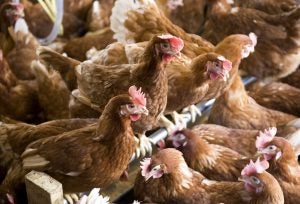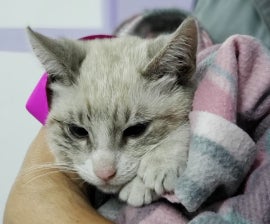
VERACRUZ—The Mexican diner chain La Parroquia de Veracruz announced its new commitment to animal welfare, pledging to source only cage-free eggs in its egg supply chain by 2025. With 32 restaurants in Mexico, the company worked with Humane Society International on the adoption of this policy, and will continue to work with the organization to complete the transition to a 100% cage-free egg supply chain at all its locations, improving the animal welfare standards of the product as well as the economic sustainability of all their processes.
Marcelino Fernández Rivero, CEO of La Parroquia de Veracruz, stated: “We are proud to offer our customers higher quality products by joining the cage-free egg movement. La Parroquia de Veracruz has corporate social responsibility policies on different issues, and it is a great pleasure for us to work to improve animal welfare in order to achieve a more responsible supply chain.”
Vivian Argüelles, animal behavior and welfare specialist for HSI/México, stated: “We congratulate La Parroquia de Veracruz for its commitment to only serve cage-free eggs in all its restaurants by 2025, and we are looking forward to working with them to ensure that the commitment is implemented. More and more corporations are adopting responsible consumption procurement policies, specifically with respect to cage-free eggs, and we invite other Mexican companies to follow this initiative.”
La Parroquia de Veracruz joins hundreds of other leading food companies committed to switching to cage-free eggs in Mexico and other regions around the world.
This commitment will improve the lives of thousands of egg-laying hens in Mexico. Conventional production systems in the country keep hens confined for their entire lives in wire cages so small they cannot even fully stretch their wings or carry out their natural behaviors. Common sense and science tell us that immobilizing animals for their lifetime in cages results in significant stress and physical pain.
END
Media contacts
Humane Society International: Laura Bravo, 55 5456 1476, laurabravocom@gmail.com, laura@labcomunicacion.com.mx, hugo@labcomunicacion.com.mx

